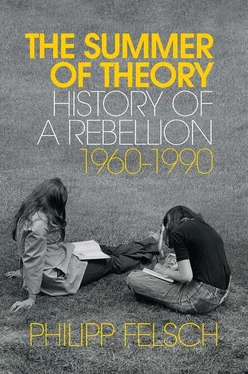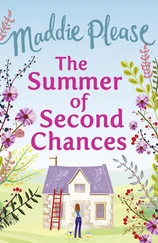1 1 Adorno, Lectures on Negative Dialectics, 57f. On the atmosphere in Adorno’s lecture course, see Kurt Flasch, ‘Die Trümmerfrau der Kultur’, in Berliner Zeitung, 18 July 1998.
2 2 Theodor W. Adorno, Metaphysics: Concept and Problems, ed. Rolf Tiedemann, trans. Edmund Jephcott, Palo Alto: Stanford University Press, 2001, 126.
3 3 Cf. Marcel Lepper, ‘Theoriegenerationen 1945–1989’, in Zeitschrift für Germanistik, 18:2 (2008), 244–9.
4 4 Tilman Fichter and Siegward Lönnendonker, Kleine Geschichte des SDS: Der Sozialistische Deutsche Studentenbund von Helmut Schmidt bis Rudi Dutschke, 4th edn, Essen: Bundeszentrale für politische Bildung, 2008.
5 5 Elisabeth Lenk, ‘Die sozialistische Theorie in der Arbeit des SDS’, in Theodor W. Adorno and Elisabeth Lenk, Briefwechsel 1962–1969, Munich: Text & Kritik, 2001, 171–81.
6 6 On the theory overload of post-war Marxism, see the classic diagnosis by Perry Anderson, Considerations on Western Marxism, London: Verso, 1979.
7 7 Hans-Jürgen Krahl, Konstitution und Klassenkampf: Zur historischen Dialektik von bürgerlicher Emanzipation und proletarischer Revolution [Constitution and class struggle: on the historical dialectic of bourgeois emancipation and proletarian revolution], Frankfurt: Neue Kritik, 1971, 236.
8 8 In the words of Peter Rühmkorf, Die Jahre, die Ihr kennt: Anfälle und Erinnerungen, Reinbek: Rowohlt, 1972, 141. On the Argument Club and the atmosphere at Freie Universität in the sixties, see ‘“Wenn die Dinge wiederkehren, sind sie schlimmer als zuvor”: Gespräch mit Margherita von Brentano’, in Margherita von Brentano, Das Politische und das Persönliche, ed. Iris Nachum and Susan Neiman, Göttingen: Wallstein, 2010, 223–59.
9 9 Franz Neumann, Behemoth: The Structure and Practice of National Socialism, Toronto: Oxford University Press, 1942.
10 10 See Helmut Lethen, ‘Unheimliche Nähe: Carl Schmitt liest Walter Benjamin’, in Frankfurter Allgemeine Zeitung, 16 September 1999.
11 11 Merve Verlag to Pierre Klossowski, 28 May 1979: Merve Archives.
12 12 Carlo Feltrinelli, Senior Service, trans. Alastair McEwen, London: Granta, 2001.
13 13 In the words of Helmut Lethen, in an email to the author, 9 December 2011.
14 14 Interview with Helmut Lethen, 30 December 2011.
15 15 At least, that was what Jacob Taubes said, according to Peter Gente; author’s interview of 26 September 2010.
16 16 Henning Ritter, ‘Klaus Heinrich: Die lange Lehre zum kurzen Protest’, in Ritter, Verehrte Denker, Springe: zu Klampen, 2012, 68.
17 17 Walter Benjamin, ‘The Author as Producer’, in Benjamin, Reflections, trans. Edmund Jephcott, New York and London: Harcourt Brace Jovanovich, 1978, 250 (translation modified).
18 18 Bohrer, ‘The Three Cultures’, 137.
19 19 Lethen, ‘Unheimliche Nähe’.
20 20 The description of Gente’s role in the dispute over Benjamin’s estate is based on communications from Helmuth Lethen (see emails of 9 December 2011 and 25 September 2014). On the intervention of Alternative, see Moritz Neuffer, ‘Theorie als Praxis: Die Zeitschrift Alternative (1938–1982)’, unpublished MA thesis, Berlin, 2012. On the background of the dispute in the humanities, see also Elke Morlok and Frederek Musall, ‘Die Geschichte seiner Freundschaft: Gershom Scholem und die Benjamin-Rezeption in der Bonner Republik’, in Gershom Scholem in Deutschland: Zwischen Seelenverwandtschaft und Sprachlosigkeit, ed. Gerold Necker, Elke Morlok and Matthias Morgenstern, Tübingen: Mohr Siebeck, 2014, 115–43.
21 21 Peter Gente, ‘Über das Vorwort Georg Lukács’ zur zweiten Auflage der Theorie des Romans’ [On Georg Lukács’s preface to the second edition of the Theory of the Novel], unpublished typescript, Berlin, 1965: Merve Archives.
22 22 Bude, ‘Die Suche nach dem Unmöglichen’, 231. On Adorno’s attitude, see Adorno and Lenk, The Challenge of Surrealism, 183: ‘I must confess to you that I am as little persuaded of the decline of the arts today as I was during the surrealist heyday.’
23 23 Hans Magnus Enzensberger, ‘Gemeinplätze, die Neueste Literatur betreffend’, in Kursbuch, 15 (1968), 195f. On the reception of Kursbuch 15, see Henning Marmulla, Enzensbergers Kursbuch: Eine Zeitschrift um 68, Berlin: Matthes & Seitz, 2011, 176–98.
24 24 Sylvère Lotringer, ‘German Issues’, in The German Issue, ed. Lotringer, vi.
25 25 Lowien, Weibliche Produktivkraft, 45.
26 26 Hans-Peter Gente, ‘Versuch über Bitterfeld’ [Essay on Bitterfeld], in Alternative, 38/9 (1964), 126f.
27 27 Helmut Lethen, email to the author, 9 December 2011.
28 28 Peter Gente, ‘Editorische Notiz’ [Editorial note], in Jacob Taubes, Ad Carl Schmitt: Gegenstrebige Fügung [To Carl Schmitt: union of opposites], Berlin: Merve, 1987, 79.
29 29 Cf. Nicolaus Sombart, Jugend in Berlin, 1933–1943: Ein Bericht, Frankfurt: Fischer, 1986, 53.
30 30 Informative in this regard is Jacob Taubes, ‘Ästhetisierung der Wahrheit im Posthistoire’, in Streitbare Philosophie: Margherita von Brentano zum 65. Geburtstag, ed. Gabriele Althaus and Irmingard Staeuble, Berlin: Metropol, 1988, 41.
31 31 Jan Assmann, ‘Talmud in der Paris-Bar: Zum Tod des jüdischen Philosophen Jacob Taubes (1923–1987)’, in die tageszeitung, 28 March 1987.
32 32 Adorno and Lenk, The Challenge of Surrealism, 147.
33 33 Henning Ritter, ‘Akosmisch: Zum Tod von Jacob Taubes’, in Frankfurter Allgemeine Zeitung, 24 March 1987. On Ritter himself, see Wolf Lepenies, ‘Der wilde Denker: Erinnerungen an Henning Ritter’, in Die Welt, 29 June 2013. For another description of the Taubes circle, see Rheinberger, Rekurrenzen.
34 34 ‘Jacob Taubes’, interview, in Denken, das an der Zeit ist, ed. Florian Rötzer, Frankfurt: Suhrkamp, 1987, 307.
35 35 Cord Riechelmann, ‘Nachwort’, in Harald Fricke, Texte 1990–2007 [Texts 1990–2007], Berlin: Merve, 2010, 151.
36 36 See Sara Hakemi, Anschlag und Spektakel: Flugblätter der Kommune I; Erklärungen von Ensslin/Baader und der frühen RAF, Bochum: Posth, 2008, 59ff.
37 37 Taubes was fond of recounting the episode. See Taubes, Ad Carl Schmitt, 24. For a vivid description of Kojève’s snobbish philosophy of history, see Nicolaus Sombart, Pariser Lehrjahre, 1951–1954: Leçons de sociologie, Hamburg: Hoffmann & Campe, 1994, 340–7.
38 38 Armin Mohler, ‘Der messianische Irrwisch: Über Jacob Taubes (1923–1987)’, in Criticón, 103 (1987), 221. On Taubes’s Berkeley association, see Martin Treml, ‘Paulinische Feindschaft: Korrespondenzen von Jacob Taubes und Carl Schmitt’, in Jacob Taubes – Carl Schmitt: Briefwechsel mit Materialien, ed. Herbert Kopp-Oberstebrink, Thorsten Palzhoff and Martin Treml, Munich: Fink, 2012.
39 39 See Roger Thiel, ‘Ästhetik der Aufklärung; Aufklärung der Ästhetik: Eine kritische Physiognomie der edition suhrkamp’, in Wolfenbütteler Notizen zur Buchgeschichte, 15:1 (1990), 3f.
40 40 ‘Einführungsprospekt zur “edition suhrkamp”’, in 25 Jahre edition suhrkamp 1963–1988, Frankfurt: Suhrkamp, 1988, 1.
41 41 Raimund Fellinger and Wolfgang Schopf (eds.), Kleine Geschichte der edition suhrkamp, Frankfurt: Suhrkamp, 2003, 26; cf. 37; see also Jürgen Habermas, ‘Kultur des Gegenwartssinns’, in Du: Das Kulturmagazin, 803 (2010), special issue: Gibt es eine neue Suhrkamp-Kultur? 38.
42 42 ‘Wissbar wohin: Philosophie’, in Der Spiegel, 20:29 (1966), 76.
43 43 Günther C. Behrmann, ‘Die Theorie, das Institut, die Zeitschrift und das Buch: Zur Publikations- und Wirkungsgeschichte der Kritischen Theorie 1945 bis 1965’, in Albrecht et al., Die intellektuelle Gründung der Bundesrepublik, 311.
44 44 Mercer, ‘The Paperback Revolution’, 621.
Читать дальше












